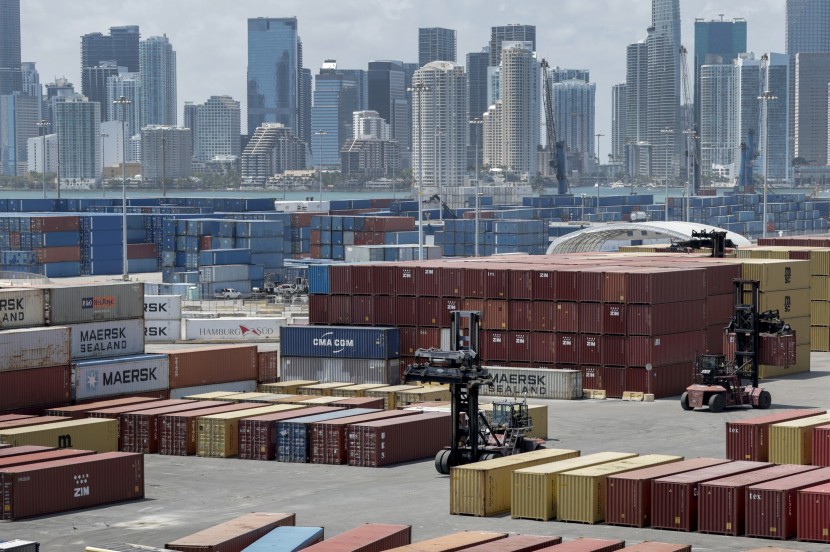
China announced sweeping retaliatory tariffs of 84% on U.S. goods Wednesday, directly countering a fresh wave of levies imposed by President Donald Trump earlier in the day.
Trump's new "reciprocal" tariffs took effect Wednesday morning, targeting Chinese imports with levies that now amount to a total of at least 104%. The White House's move comes amid a hardline stance from Washington, with the administration citing the need to address long-standing trade imbalances and unfair practices.
In response, Beijing reaffirmed its opposition to the escalating measures. "The U.S. escalation of tariffs on China is a mistake upon mistake, severely infringing upon China's legitimate rights and interests, and seriously damaging the multilateral trading system based on rules," China's State Council Tariff Commission said in a statement announcing the retaliatory measures.
Despite previous warnings from Chinese officials that they would "fight to the end" if Washington pressed forward with new tariffs, Trump moved ahead with a dramatic increase — first hiking levies by 34 percentage points, then tacking on another 50 after Beijing refused to back down. These come on top of a previous 20% hike implemented since Trump's return to office.
In addition to tariff increases, China's Commerce Ministry imposed export controls on 12 U.S. companies, preventing Chinese firms from supplying them with dual-use items — goods that can be used for both military and civilian purposes. China also added six American companies to its "unreliable entity list," effectively barring them from investing or conducting new trade in China. Beijing further escalated the dispute by filing a formal complaint with the World Trade Organization.
U.S. Treasury Secretary Scott Bessent downplayed the impact of China's response. Speaking to Fox Business on Wednesday, Bessent said it was unfortunate that China does not "want to come and negotiate" a tariff deal. He labeled China as "the worst offenders in the international trading system."
"They have the most imbalanced economy in the history of the modern world, and I can tell you that this escalation is a loser for them ... They're the surplus country," Bessent said. "China's exports to the US are five times our exports to China. So, they can raise their tariffs. But so what?"
Despite the show of defiance from Beijing, signs suggest China is preparing for economic fallout. Shortly after the tariffs went into effect, a Chinese Foreign Ministry spokesperson emphasized that the U.S. must "demonstrate an attitude of equality, respect and mutual benefit" if it genuinely wishes to resolve the conflict through dialogue.
Beijing also released a white paper outlining the history and current state of U.S.-China economic relations, blaming Washington's "unilateral and protectionist measures" for the deterioration. In a written Q&A about the white paper, an unnamed Commerce Ministry official reiterated that China does not seek a trade war but vowed to respond to any further aggression.
"If the U.S. insists on further escalating trade restrictions, China has the firm will and ample tools to take resolute countermeasures — and will see it through to the end," the official said.
Though China has seen signs of economic recovery in recent months following prolonged struggles with real estate debt, local government liabilities, and pandemic-related disruptions, the export sector remains crucial.








